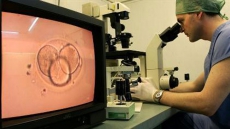You may get a long and healthy life simply by balancing your protein and carbohydrate intake, without drastically cutting down your calorie intake.
A research done in mice shows that low protein, high carbohydrate diets can provide benefits similar to those obtained with calorie restriction.
"We have shown that when compared head-to-head, mice got the same benefits from a low protein, high carbohydrate diet as a 40 percent calorie restriction diet," said senior author Stephen Simpson, academic director of the University of Sydney's Charles Perkins Centre.
"Except for the fanatical few, no one can maintain a 40 percent calorie reduction in the long term, and doing so can risk loss of bone mass, libido, and fertility."
The examiners compared three 8-week diets varying in protein-carbohydrate ratio where food was restricted or available at all times.
Of the three, low protein, high carbohydrate (LPHC) diets, offered when food was always available, delivered similar benefits as calorie restriction in terms of insulin, blood sugar and cholesterol levels, despite increased food intake.
Even though the mice on LPHC diets ate more when food was always available, their metabolism was higher than that of mice on the calorie-restricted diet, and they did not gain more weight.
LPHC diets under ad-libitum fed conditions generate the metabolic benefits of calorie restriction without a 40 percent reduction in total calorie intake.
More research is required to determine how LPHC diets affect long-term metabolic health and survival as well as to what extent the type and quality of proteins and carbohydrates matter.
"According to these mice data and emerging human research, it appears that including modest intakes of high-quality protein and plenty of healthy carbohydrates in the diet is beneficial for health as we age," Simpson said.
The results were outlined in the journal Cell Reports.




